
| Version | Summary | Created by | Modification | Content Size | Created at | Operation |
|---|---|---|---|---|---|---|
| 1 | Camila Xu | -- | 3811 | 2022-10-17 01:43:26 |
Video Upload Options
Green tea is a type of tea that is made from Camellia sinensis leaves that have not undergone the same withering and oxidation process used to make oolong teas and black teas. Green tea originated in China , but its production and manufacture has spread to many other countries in Asia. Several varieties of green tea exist, which differ substantially based on the variety of C. sinensis used, growing conditions, horticultural methods, production processing, and time of harvest. Although there has been considerable research on the possible health effects of consuming green tea regularly, there is little evidence that drinking green tea has any effects on health.
1. History
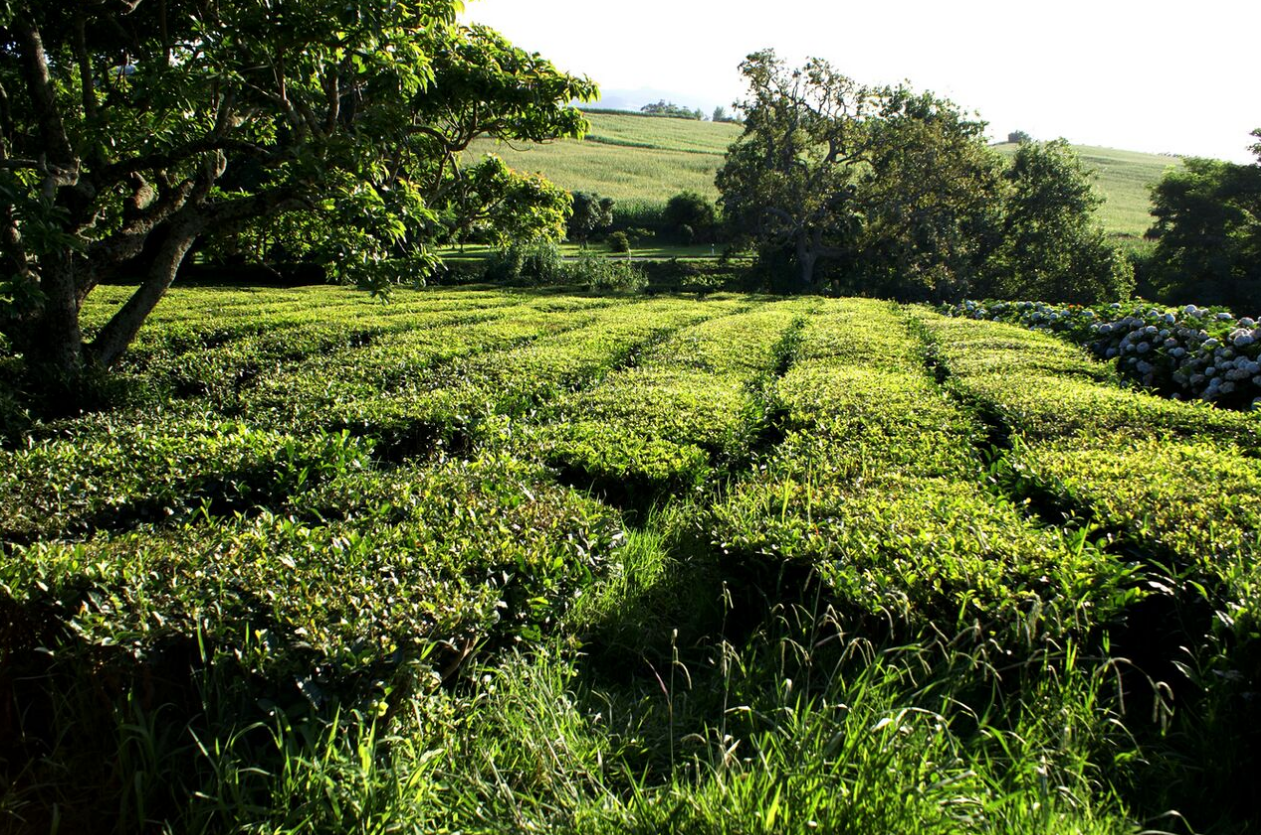
Tea consumption has its legendary origins in China during the reign of Emperor Shennong.[1]
A book written by Lu Yu in 600-900 AD (Tang Dynasty), "Tea Classic" (simplified Chinese: 茶经; traditional Chinese: 茶經; pinyin: chájīng), is considered important in green tea history. The Kissa Yojoki (喫茶養生記 Book of Tea), written by Zen priest Eisai in 1211, describes how drinking green tea may affect five vital organs, the shapes of tea plants, flowers and leaves, and how to grow and process tea leaves.
2. Steeping, Brewing and Serving
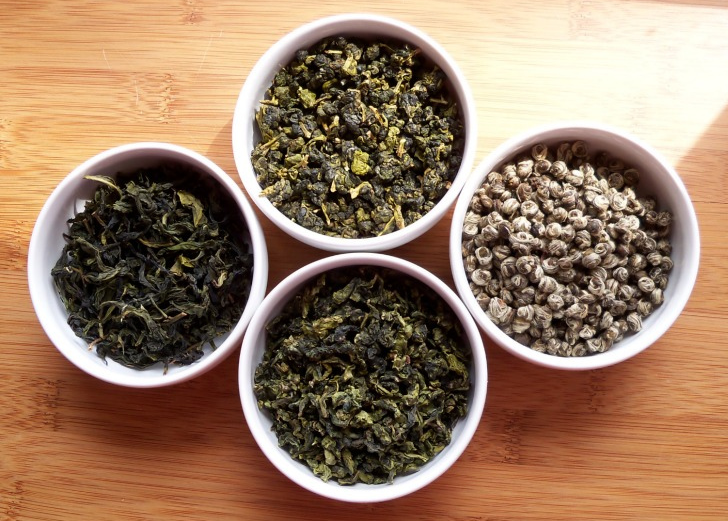
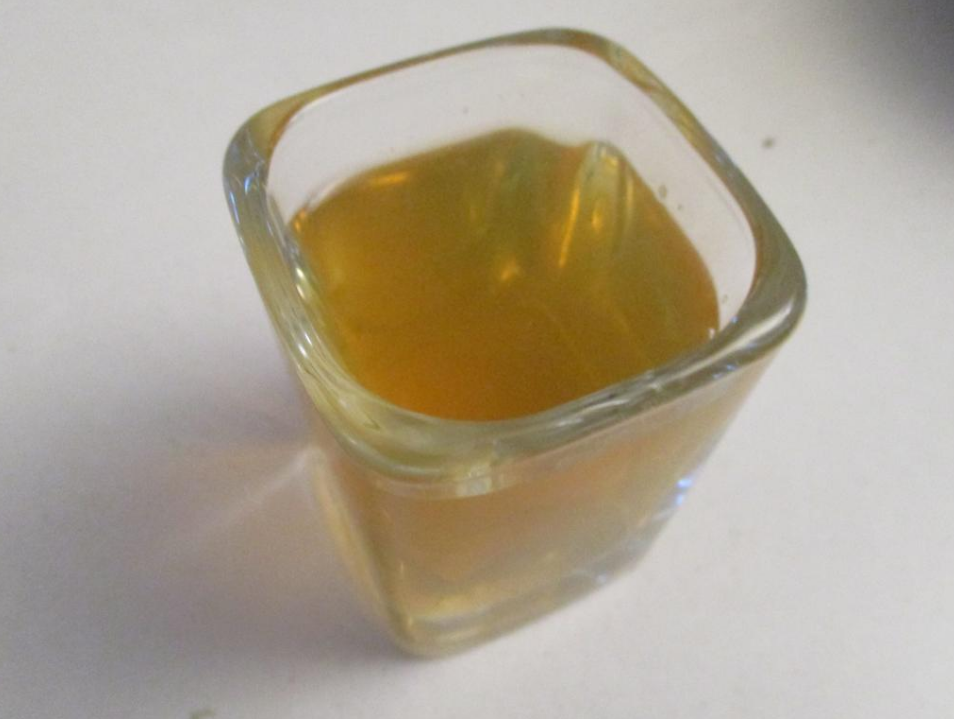
Steeping, or brewing, is the process of making tea from leaves and hot water, generally using 2 grams (0.071 oz) of tea per 100 millilitres (3.5 imp fl oz; 3.4 US fl oz) of water (H2O) or about 1 teaspoon of green tea per 150 ml cup. Steeping temperatures range from 61 °C (142 °F) to 87 °C (189 °F) and steeping times from 30 seconds to three minutes.
Generally, lower-quality green teas are steeped hotter and longer while higher-quality teas are steeped cooler and shorter, but usually multiple times (2-3 typically). Higher-quality teas like gyokuro use more tea leaves and are steeped multiple times for short durations. Steeping too hot or too long results in the release of excessive amounts of tannins, leading to a bitter, astringent brew, regardless of initial quality. The brew’s taste is also affected by the steeping technique; two important ones are to warm the steeping container beforehand to prevent the tea from immediately cooling down, and to leave the tea leaf in the pot and gradually add more hot water during consumption.
3. Extracts
Polyphenols found in green tea include epigallocatechin gallate (EGCG), epicatechin gallate, epicatechins and flavanols,[2] which are under laboratory research for their potential effects in vivo.[3] Other components include three kinds of flavonoids, known as kaempferol, quercetin, and myricetin.[4] Although the mean content of flavonoids and catechins in a cup of green tea is higher than that in the same volume of other food and drink items that are traditionally considered to promote health,[5] flavonoids and catechins have no proven biological effect in humans.[6][7]
Green tea leaves are initially processed by soaking in an alcohol solution, which may be further concentrated to various levels; byproducts of the process are also packaged and used. Extracts may be sold in liquid, powder, capsule, or tablet form.[3] Decaffeinated versions are also available.[8] Green tea extract supplements are accessible over the counter in various forms.[9]
4. Health Effects
Regular green tea is 99.9% water, provides 1 Calorie per 100 mL serving, is devoid of significant nutrient content (table) and contains phytochemicals, such as polyphenols and caffeine.
Although numerous claims have been made for the health benefits of green tea, human clinical research has not provided conclusive evidence of any effects.[6][10][11] In 2011, a panel of scientists published a report on the claims for health effects at the request of the European Commission: in general they found that the claims made for green tea were not supported by sufficient scientific evidence.[6] Although green tea may enhance mental alertness due to its caffeine content, there is only weak, inconclusive evidence that regular consumption of green tea affects the risk of cancer or cardiovascular diseases, and there is no evidence that it benefits weight loss.[10]
4.1. Cancer
There is no conclusive evidence that green tea helps to prevent or treat cancer in people.[11][12] A review of existing studies concluded that while suggestive evidence existed, it did not amount to a clear indication of benefit.[12]
Daily consumption of black tea (but not green tea) has been associated with a significant reduction in death from all cancers.[13]
The link between green tea consumption and the risk of certain cancers such as stomach cancer and non-melanoma skin cancers is unclear due to inconsistent or inadequate evidence.[14][15]
Green tea interferes with the chemotherapy drug bortezomib (Velcade) and other boronic acid-based proteasome inhibitors, and should be avoided by people taking these medications.[16]
4.2. Cardiovascular Disease
Observational studies found a minor correlation between daily consumption of green tea and a 5% lower risk of death from cardiovascular disease. In a 2015 meta-analysis of such observational studies, an increase in one cup of green tea per day was correlated with slightly lower risk of death from cardiovascular causes.[13] Green tea consumption may be correlated with a reduced risk of stroke.[17][18] Meta-analyses of randomized controlled trials found that green tea consumption for 3–6 months may produce small reductions (about 2–3 mm Hg each) in systolic and diastolic blood pressures.[18][19][20][21] A separate systematic review and meta-analysis of randomized controlled trials found that consumption of 5-6 cups of green tea per day was associated with a small reduction in systolic blood pressure (2 mmHg), but did not lead to a significant difference in diastolic blood pressure.[22]
4.3. Glycemic Control
Green tea consumption lowers fasting blood sugar but in clinical studies the beverage's effect on hemoglobin A1c and fasting insulin levels was inconsistent.[23][24][25]
4.4. Hyperlipidemia
Drinking green tea or taking green tea supplements decreases the blood concentration of total cholesterol (about 3–7 mg/dL), LDL cholesterol (about 2 mg/dL), and does not affect the concentration of HDL cholesterol or triglycerides.[22][23][26] A 2013 Cochrane meta-analysis of longer-term randomized controlled trials (>3 months duration) concluded that green tea consumption lowers total and LDL cholesterol concentrations in the blood.[23]
4.5. Inflammation
A 2015 systematic review and meta-analysis of 11 randomized controlled trials found that green tea consumption was not significantly associated with lower plasma levels of C-reactive protein levels (a marker of inflammation).[27]
4.6. Mortality Risk
In one study, daily consumption of green tea was correlated with a lower risk of death from any cause; an increase of one cup of green tea per day was linked with a 4% lower risk of death from any cause.[13] A separate analysis found that an increase of three cups of tea or green tea per day was associated with a small lower risk of total mortality in Asians and women.[17]
4.7. Weight Loss
There is no conclusive evidence that green tea aids in weight loss.[10][28]
4.8. Toxicity
Moderate, regular, and habitual consumption of green tea is safe;[11] however, there are reports of liver toxicity in humans after consuming high doses (10–29 mg/kg/day) of green tea extract dietary supplements,[29] and high doses may act as a pro-oxidant to damage DNA.[3]
5. Production
In 2013, global production of green tea was approximately 1.7 million tonnes, with a forecast to double in volume by 2023.[30] As of 2015, China provided 80% of the world's green tea market, leading to its green tea exports rising by 9% annually, while exporting 325,000 tonnes in 2015.[31] In 2015, the US was the largest importer of Chinese green tea (6,800 tonnes), an increase of 10% over 2014, and Britain imported 1,900 tonnes, 15% more than in 2014.[31] In 2015, Kenya was the largest exporter of black tea in the world (443,000 tonnes).[31]
5.1. Growing, Harvesting and Processing
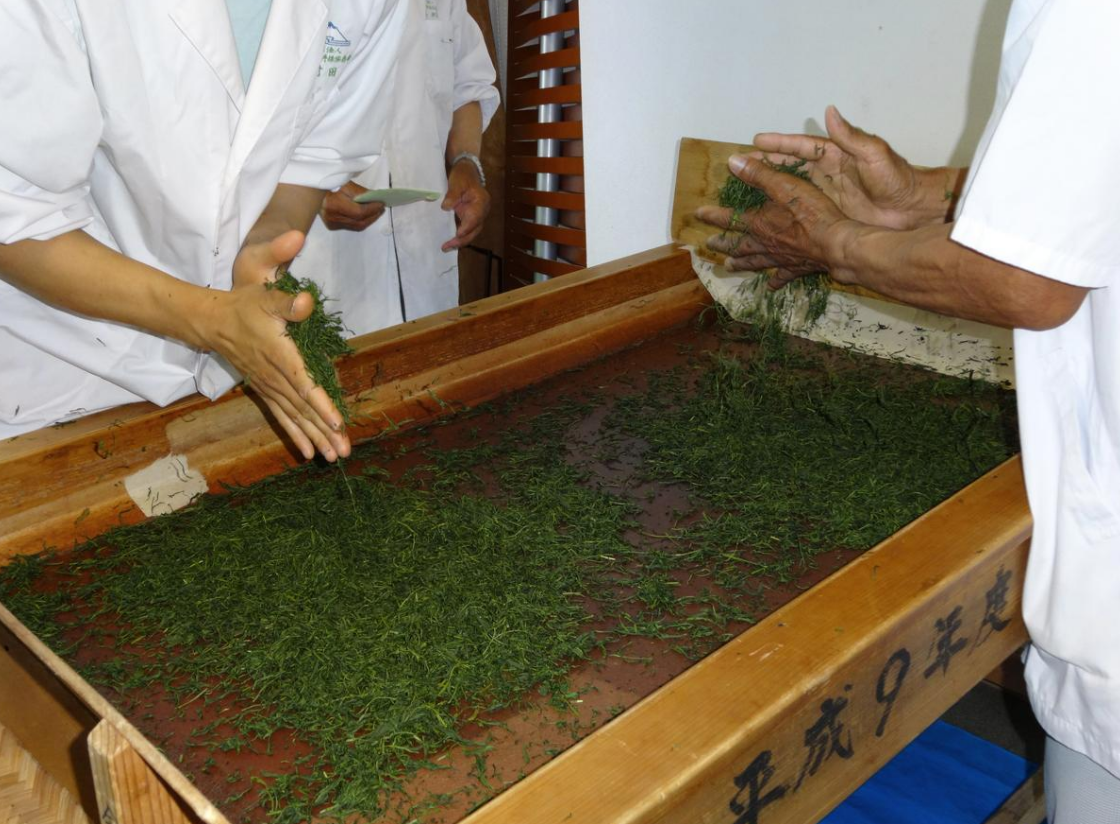
Green tea is processed and grown in a variety of ways, depending on the type of green tea desired. As a result of these methods, maximum amounts of polyphenols and volatile organic compounds are retained, affecting aroma and taste. The growing conditions can be broken down into two basic types − those grown in the sun and those grown under the shade. The green tea plants are grown in rows that are pruned to produce shoots in a regular manner, and in general are harvested three times per year. The first flush takes place in late April to early May. The second harvest usually takes place from June through July, and the third picking takes place in late July to early August. Sometimes, there will also be a fourth harvest. It is the first flush in the spring that brings the best-quality leaves, with higher prices to match.
Green tea is processed using either artisanal or modern methods. Sun-drying, basket or charcoal firing, or pan-firing are common artisanal methods. Oven-drying, tumbling, or steaming are common modern methods.[32] Processed green teas, known as aracha, are stored under low humidity refrigeration in 30- or 60-kg paper bags at 0–5 °C (32–41 °F). This aracha has yet to be refined at this stage, with a final firing taking place before blending, selection and packaging take place. The leaves in this state will be re-fired throughout the year as they are needed, giving the green teas a longer shelf-life and better flavor. The first flush tea of May will readily store in this fashion until the next year's harvest. After this re-drying process, each crude tea will be sifted and graded according to size. Finally, each lot will be blended according to the blending order by the tasters and packed for sale.[33]
5.2. Import of Radioactive Japanese Tea
On 17 June 2011, at Charles de Gaulle airport in Paris, France, radioactive cesium of 1,038 becquerels per kilogram was measured in tea leaves imported from Shizuoka Prefecture, Japan as a result of the Fukushima Daiichi nuclear disaster on 11 March, which was more than twice the restricted amount in the European Union of 500 becquerels per kilogram. The government of France announced that they rejected the leaves, which totaled 162 kilograms (357 lb).[34]
In response, the governor of Shizuoka Prefecture, Heita Kawakatsu, stated: "there is absolutely no problem when they [people] drink them because it will be diluted to about 10 becquerels per kilogram when they steep them even if the leaves have 1,000 becquerels per kilogram;" a statement backed by tests done in Shizuoka.[35] Japanese Minister for Consumer Affairs and Food Safety Renhō stated on 3 June 2011 that "there are cases in which aracha [whole leaves of Japanese green tea] are sold as furikake [condiments sprinkled on rice] and so on and they are eaten as they are, therefore we think that it is important to inspect tea leaves including aracha from the viewpoint of consumers' safety."[36]
In 2018, the US Food and Drug Administration updated its import status on Japanese products deemed to be contaminated by radionuclides, indicating that tea from the Ibaraki prefecture had been removed from the list by the Government of Japan in 2015.[37]
6. Green Tea by Country
6.1. China
Loose leaf green tea has been the most popular form of tea in China since at least the Southern Song dynasty.[38][39] While Chinese green tea was originally steamed, as it still is in Japan, after the early Ming dynasty it has typically been processed by being pan-fired in a dry wok.[40] Other processes employed in China today include oven-firing, basket-firing, tumble-drying and sun-drying.[41] Green tea is the most widely produced form of tea in China, with 1.42 million tons grown in 2014.[42]
Popular green teas produced in China today include:
- Biluochun
Produced in Jiangsu, this tea is named after the shape of the leaves, which are curled like snails.[43] - Chun Mee
Known in English by its Cantonese name, and popular outside China. It has a plum-like flavor.[44] - Gunpowder tea
A tea which is tumble-dried so that each leaf is rolled into a small pellet that resembles gunpowder.[45] - Huangshan Maofeng
A type of maofeng tea grown in the microclimate of the Huangshan mountain range in Anhui province. Maofeng teas are harvested by plucking intact two equal-sized leaves and a bud together.[46] - Longjing
Also known as "Dragon Well" tea, the English translation of its name. Grown near Hangzhou in Zhejiang province, Longjing is the most well-known pan-fired Chinese green tea. Its flavor derives partly from the terroir of the region in which it is produced.[43] - Lu'an Melon Seed
Grown in Anhui province. Unlike typical Chinese teas, two leaves are plucked separately from each branch, with no bud and no stems. Harvested later in the season, it has a grassier flavor than typical Chinese green teas.[47] - Taiping Houkui
Grown in Anhui province. Uses a cultivar with an unusually large leaf. The production process flattens the tea leaves, creating the so-called "two knives and a pole" shape from the leaves and stem.[48] - Xinyang Maojian
A type of maojian tea grown in Xinyang, Henan province.[49] Maojian teas are harvested by plucking a bud and one leaf together.[46]
6.2. Japan
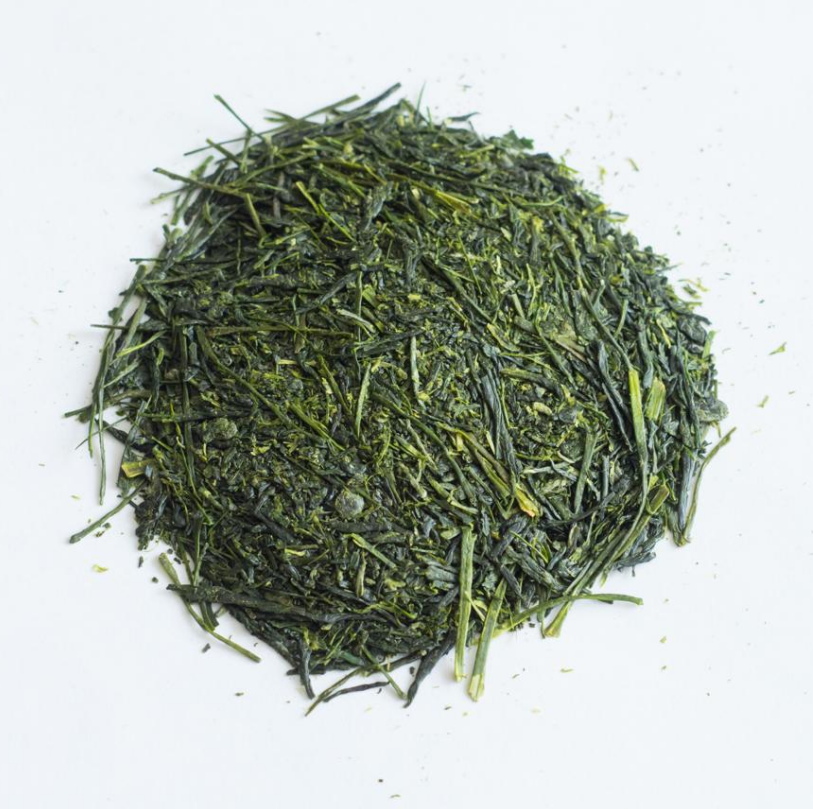
Tea seeds were first brought to Japan in the early 9th century by the Buddhist monks Saicho and Kukai. During the Heian period (794–1185), Emperor Saga introduced the practice of drinking tea to the imperial family. The Zen Buddhist priest Eisai (1141–1215), founder of the Rinzai school of Buddhism, brought tea seeds from China to plant in various places in Japan. Eisai advocated that all people, not just Buddhist monks and the elite, drink tea for its health benefits.[50]
The oldest tea producing region in Japan is Uji, located near the former capital of Kyoto.[50] It is thought that seeds sent by Eisai were planted in Uji, becoming the basis of the tea industry there.[51] Today, Japan's most expensive premium teas are still grown in Uji.[52] The largest tea producing area today is Shizuoka Prefecture, which accounts for 40% of total Japanese sencha production.[52][53] Other major tea producing regions include the island of Kyushu and the prefectures of Shiga, Gifu, and Saitama in central Honshu.[52]
All commercial tea produced in Japan today is green tea,[54] though for a brief period black tea was also produced in the late 19th and early 20th centuries. Japanese tea production is heavily mechanized, and is characterized by the use of modern technology and processes to improve yields and reduce labor. Because of the high cost of labor in Japan, only the highest quality teas are plucked and processed by hand in the traditional fashion.[55]
Japanese green teas have a thin, needle-like shape and a rich, dark green color. Unlike Chinese teas, most Japanese teas are produced by steaming rather than pan firing. This produces their characteristic color, and creates a sweeter, more grassy flavor. A mechanical rolling/drying process then dries the tea leaves into their final shape.[54] The liquor of steamed Japanese tea tends to be cloudy due to the higher quantity of dissolved solids.[56]
Most Japanese teas are blended from leaves grown in different regions, with less emphasis on terroir than in the Chinese market. Because of the limited quantity of tea that can be produced in Japan, the majority of production is dedicated to the premium tea market. Bottled tea and tea-flavored food products usually use lower-grade Japanese-style tea produced in China.[57]
Although a variety of commercial tea cultivars exist in Japan, the vast majority of Japanese tea is produced using the Yabukita cultivar developed in the 1950s.[58]
Popular Japanese green teas include:
- Bancha
A lower-grade tea plucked from the same bushes used to produce sencha. It has a somewhat bolder flavor, and is plucked each season after sencha production is finished.[59] - Genmaicha
Made by combining sencha tea leaves with toasted puffs of rice. - Gyokuro
Grown under shade for three weeks prior to plucking, gyokuro is one of the most exclusive varieties of tea produced in Japan.[60] The shading technique imparts a sweeter flavor, and produces a particularly rich color thanks to the higher amounts of chlorophyll in the shaded leaf. Gyokuro tea is associated with the Uji region, the first tea-growing region in Japan. It is often made using smaller-leaf cultivars of the tea plant.[61] - Hōjicha
This type of tea is made by roasting sencha or bancha leaves with kukicha twigs.[62] - Kabusecha
Similar to gyokuro, kabusecha is shaded for only a week prior to plucking. Its flavor is somewhat between that of gyokuro and normal sencha.[60][61] - Kukicha
A blended tea made of sencha leaves and stems.[63] - Matcha
Like gyokuro, matcha is shaded before plucking. The plucked and processed leaf is called tencha. This product is then ground into a fine powder, which is matcha. Because the tea powder is very perishable, matcha is usually sold in small quantities. It is typically rather expensive.[62] Matcha is the type of tea used in the Japanese tea ceremony. It is prepared by whisking the tea with hot water in a bowl, until the surface is frothy. If the water is too hot, the tea may become overly bitter.[64] - Sencha
This type of tea is produced throughout the tea season, and is the standard style today, representing 80% of all tea produced in Japan.[65] 90% of sencha is grown from the Yabukita cultivar.[58] - Shincha
The first early harvest of tea, plucked before the first flush, is called shincha. Shincha is made from the youngest new growth leaves, and is plucked from early April to early May. Shincha typically refers to the early harvest of sencha, but can refer to any type of tea plucked early in the season, before the main harvest. Because of the limited quantities in which it is produced, shincha is highly prized and expensive to obtain.[66]
6.3. Korea
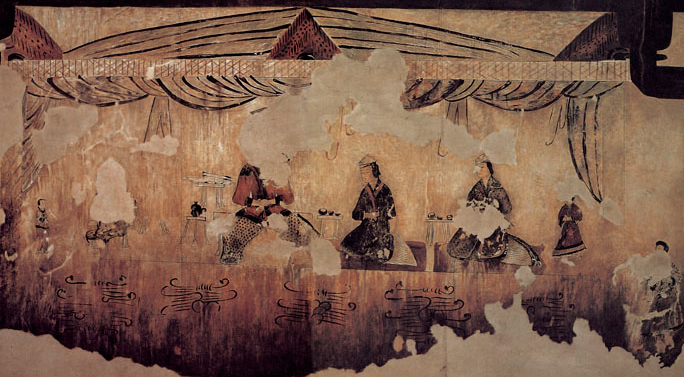
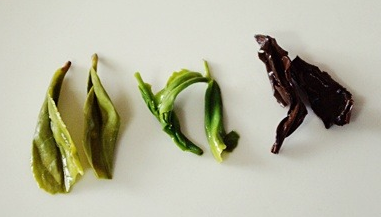
According to Record of Gaya cited in Memorabilia of the Three Kingdoms, the legendary queen Heo Hwang-ok, a princess of the Ayodhya married to King Suro of Gaya, brought the tea plant from India and planted it in Baegwolsan, a mountain in current Changwon.[67]:3 However, it is a widely held view that systematic planting of tea bushes began with the introduction of Chinese tea culture by the Buddhist monks around the 4th century.[68] Amongst some of the earliest Buddhist temples in Korea, Bulgapsa (founded in 384, in Yeonggwang), Bulhoesa (founded in 384, in Naju) and Hwaeomsa (founded in Gurye, in 544) claim to be the birthplace of Korean tea culture.[68] Green tea was commonly offered to Buddha, as well as to the spirits of deceased ancestors.[68] Tea culture continued to prosper during the Goryeo Dynasty, with the tea offering being a part of the biggest national ceremonies and tea towns were formed around temples.[69] Seon-Buddhist manners of ceremony prevailed.[69] During the Joseon Dynasty, however, Korean tea culture underwent secularization, along with the Korean culture itself.[69] Korean ancestral rite jesa, also referred to as charye (차례; 茶禮, "tea rite"), has its origin in darye (다례; 茶禮, "tea rite"), the practice of offering tea as simple ancestral rites by the royal family and the aristocracy in Joseon.[69]
Tea culture of Korea was actively suppressed by the Japanese during the Japanese forced occupation period (1910‒1945), and the subsequent Korean War (1950‒1953) made it even harder for the Korean tea tradition to survive.[70] The restoration of the Korean way of tea began in the 1970s, around Dasolsa.[70] Commercial production of green tea in South Korea only began in the 1970s,.[71] By 2012 the industry was producing 20% as much tea as Taiwan and 3.5% as much as Japan.[72][73] Green tea is not as popular as coffee or other types of Korean teas in modern South Korea . The annual consumption per capita of green tea in South Korea in 2016 was 0.16 kg (0.35 lb), compared to 3.9 kg (8.6 lb) coffee.[74] Recently however, as the coffee market reached saturation point, South Korean tea production doubled during 2010‒2014,[75] as did tea imports during 2009-2015,[76] despite very high tariff rate (513.6% for green tea, compared to 40% for black tea, 8% for processed/roasted coffee, and 2% for raw coffee beans).
Korean green tea can be classified into various types based on several different factors. The most common is the flush, or the time of the year when the leaves are plucked (and thus also by leaf size).
- Ujeon
Ujeon (우전; 雨前; lit. "pre-rain"), or cheonmul-cha (첫물차; lit. "first flush tea"), is made of hand-picked leaves plucked before gogu (20–21 April).[77][78][79] The ideal steeping temperature for ujeon tea is 50 °C (122 °F).[80] - Sejak
Sejak (세작; 細雀; lit. "thin sparrow"), or dumul-cha (두물차; lit. "second flush tea"), is made of hand-picked leaves plucked after gogu (20–21 April) but before ipha (5–6 May).[77][78][79] The tea is also called jakseol (작설; 雀舌; lit. "sparrow tongue") as the tea leaves are plucked when they are about the size of a sparrow's tongue.[78] The ideal steeping temperature for sejak tea is 60–70 °C (140–158 °F).[80] - Jungjak
Jungjak (중작; 中雀; lit. "medium sparrow"), or semul-cha (세물차; lit. "third flush tea"), is made of leaves plucked after ipha (5–6 May) until the mid May.[77][78] The ideal steeping temperature for jungjak tea is 70–80 °C (158–176 °F).[80] - Daejak
Daejak (대작; 大雀; lit. "big sparrow"), or kkeunmul-cha (끝물차; lit. "final flush tea"), is made of tea leaves plucked in late May and after.[78] It is usually made into tea bags or used in cooking.[78] The ideal steeping temperature for daejak tea is 80–90 °C (176–194 °F).[80]
The mode of preparation also differs:
- Ipcha (yeopcha)
The synonyms ipcha (잎차; lit. "leaf tea") and yeopcha (엽차; 葉茶; lit. "leaf tea") refer to loose leaf tea, often in contrast to tea in tea bags. As the words mean "leaf tea", they can also be used in contrast to powdered tea.[81] - Garucha (malcha)
The synonyms garucha (가루차; lit. "powder tea") and malcha (말차; 末茶; lit. "powder tea") refer to powdered tea.[82][83]
Leaf teas are processed either by roasting or steaming.
- Deokkeum-cha (bucho-cha)
Roasting is the most common and traditional way of tea processing in Korea. Also translated into "pan-fried tea", the deokkeum-cha (덖음차; lit. "roasted tea") or bucho-cha (부초차; 麩炒茶; lit. "roasted tea") varieties are richer in flavour.[84][85][86] - Jeungje-cha
Steaming is less popular in Korean green tea processing, but the method is still used in temple cuisine. Tea prepared with steamed tea leaves, called jeungje-cha (증제차; 蒸製茶; lit. "steamed tea"), are more vivid in colour.[87]
Southern, warmer regions such as Boseong in South Jeolla Province, Hadong in South Gyeongsang Province, and Jeju Island are famous for producing high quality tea leaves.[88]
- Banya-cha
Banya-cha (반야차; 般若茶; lit. "prajñā tea") is one of the most renowned Korean green teas.[89] This steamed tea is developed by Buddhist monks in Boseong. The tea is grown on sandy loam near mountains and sea. The word banya is a Korean transliteration of the Buddhist concept prajñā. - Jungno-cha
Jungno-cha (죽로차; 竹露茶; lit. "bamboo dew tea") is one of the most renowned Korean green teas.[90] The roasted variety of tea is made of tea leaves grown among the bamboo in Gimhae, Hadong, and Jinju in South Gyeongsang Province.[91]
Green tea can be blended with other ingredients.
- Hyeonmi-nokcha
Nokcha (green tea) blended with hyeonmi-cha (brown rice tea) is called hyeonmi-nokcha (현미녹차; 玄米綠茶; lit. "brown rice green tea"). - Remon-nokcha
Nokcha (green tea) blended with lemon is called remon-nokcha (레몬 녹차; lit. "lemon green tea").
6.4. Other Countries
In Canada, green tea is defined as a dry-based mixture and the sale of it is regulated by the Canadian Food Inspection Agency (CFIA). It is one of the foods for which a standard of identity is specified according to the Food and Drug Regulations. It should contain not less than 33% water-soluble extractive (determined by official method FO-37 which is the determination of water-soluble extractive in tea) and the total ash should between 4% to 7%.[92]
References
- Dattner, Christine; Boussabba, Sophie (2003). Emmanuelle Javelle. ed. The Book of Green Tea. Universe Books. p. 13. ISBN 978-0-7893-0853-5.
- "Tea and health: studies in humans". Current Pharmaceutical Design 19 (34): 6141–7. 2013. doi:10.2174/1381612811319340008. PMID 23448443. http://www.pubmedcentral.nih.gov/articlerender.fcgi?tool=pmcentrez&artid=4055352
- I.T. Johnson & G. Williamson, Phytochemical functional foods, Cambridge, UK: Woodhead Publishing, 2003, pp. 135-145
- Committee on Diet, Nutrition, and Cancer, Assembly of Life Sciences, National Research Council, Diet, nutrition, and cancer, Washington: D.C National Academies Press, 1982, p. 286.
- USDA Database for the Flavonoid Content of Selected Foods, Release 2.1 (2007)
- "Scientific Opinion on the substantiation of health claims related to Camellia sinensis (L.) Kuntze (tea), including catechins in green tea, and improvement of endothelium-dependent vasodilation (ID 1106, 1310), maintenance of normal blood pressure (ID 1310, 2657), maintenance of normal blood glucose concentrations (ID 1108), maintenance of normal blood LDL cholesterol concentrations (ID 2640), protection of the skin from UV-induced (including photo-oxidative) damage (ID 1110, 1119), protection of DNA from oxidative damage (ID 1120, 1121), protection of lipids from oxidative damage (ID 1275), contribution to normal cognitive function (ID 1117, 2812), "cardiovascular system" (ID 2814), "invigoration of the body" (ID 1274, 3280), decreasing potentially pathogenic gastro-intestinal microorganisms (ID 1118), "immune health" (ID 1273) and "mouth" (ID 2813) pursuant to Article 13(1) of Regulation (EC) No 1924/2006". European Food Safety Authority. 8 April 2011. http://www.efsa.europa.eu/en/efsajournal/pub/2055. Retrieved 9 November 2014.
- EFSA Panel on Dietetic Products, Nutrition and Allergies (NDA)2, 3 European Food Safety Authority (EFSA), Parma, Italy (2010). "Scientific Opinion on the substantiation of health claims related to various food(s)/food constituent(s) and protection of cells from premature aging, antioxidant activity, antioxidant content and antioxidant properties, and protection of DNA, proteins and lipids from oxidative damage pursuant to Article 13(1) of Regulation (EC) No 1924/20061". EFSA Journal 8 (2): 1489. doi:10.2903/j.efsa.2010.1489. https://efsa.onlinelibrary.wiley.com/doi/abs/10.2903/j.efsa.2010.1489.
- "Update on the USP Green Tea Extract Monograph" (in en). USP. April 10, 2009. http://www.usp.org/usp-nf/notices/retired-compendial-notices/update-usp-green-tea-extract-monograph.
- A. Bascom, Incorporating herbal medicine into clinical practice, Philadelphia: F.A. Davis Company, 2002, p. 153.
- "Green tea". National Center for Complementary and Integrative Health, US National Institutes of Health. September 2016. https://nccih.nih.gov/health/greentea. Retrieved 12 August 2018.
- "Green tea (Camellia sinensis) for the prevention of cancer". Cochrane Database Syst Rev (3): CD005004. 2009. doi:10.1002/14651858.CD005004.pub2. PMID 19588362. https://dx.doi.org/10.1002%2F14651858.CD005004.pub2
- "Green tea and green tea catechin extracts: an overview of the clinical evidence". Maturitas 73 (4): 280–7. December 2012. doi:10.1016/j.maturitas.2012.08.008. PMID 22986087. "In conclusion, whilst there is a considerable body of evidence for green tea with some of it suggesting a positive effect, it is difficult to be definitive as to its health benefits.". https://dx.doi.org/10.1016%2Fj.maturitas.2012.08.008
- "Tea consumption and mortality of all cancers, CVD and all causes: a meta-analysis of eighteen prospective cohort studies". Br J Nutr 114 (5): 1–11. July 2015. doi:10.1017/S0007114515002329. PMID 26202661. https://dx.doi.org/10.1017%2FS0007114515002329
- "Green tea and the risk of gastric cancer: epidemiological evidence". World J Gastroenterol 19 (24): 3713–22. June 2013. doi:10.3748/wjg.v19.i24.3713. PMID 23840110. http://www.pubmedcentral.nih.gov/articlerender.fcgi?tool=pmcentrez&artid=3699047
- Caini, S; Cattaruzza, MS; Bendinelli, B; Tosti, G; Masala, G; Gnagnarella, P; Assedi, M; Stanganelli, I et al. (February 2017). "Coffee, tea and caffeine intake and the risk of non-melanoma skin cancer: a review of the literature and meta-analysis". European Journal of Nutrition 56 (1): 1–12. doi:10.1007/s00394-016-1253-6. PMID 27388462. https://dx.doi.org/10.1007%2Fs00394-016-1253-6
- "Why bortezomib cannot go with 'green'?". Cancer Biol Med 10 (4): 206–13. December 2013. doi:10.7497/j.issn.2095-3941.2013.04.004. PMID 24349830. http://www.pubmedcentral.nih.gov/articlerender.fcgi?tool=pmcentrez&artid=3860349
- "Tea consumption and risk of cardiovascular outcomes and total mortality: a systematic review and meta-analysis of prospective observational studies". Eur J Epidemiology 30 (2): 103–13. February 2015. doi:10.1007/s10654-014-9960-x. PMID 25354990. https://dx.doi.org/10.1007%2Fs10654-014-9960-x
- Kromhout, D; Spaaij, CJ; de Goede, J; Weggemans, RM (August 2016). "The 2015 Dutch food-based dietary guidelines". European Journal of Clinical Nutrition 70 (8): 869–78. doi:10.1038/ejcn.2016.52. PMID 27049034. http://www.pubmedcentral.nih.gov/articlerender.fcgi?tool=pmcentrez&artid=5399142
- "Effects of tea intake on blood pressure: a meta-analysis of randomised controlled trials". Br J Nutr 112 (7): 1043–54. October 2014. doi:10.1017/S0007114514001731. PMID 25137341. https://dx.doi.org/10.1017%2FS0007114514001731
- "Green tea catechins and blood pressure: a systematic review and meta-analysis of randomised controlled trials". Eur J Nutr 53 (6): 1299–1311. September 2014. doi:10.1007/s00394-014-0720-1. PMID 24861099. https://dx.doi.org/10.1007%2Fs00394-014-0720-1
- Mozaffarian, D (January 2016). "Dietary and Policy Priorities for Cardiovascular Disease, Diabetes, and Obesity: A Comprehensive Review". Circulation 133 (2): 187–225. doi:10.1161/CIRCULATIONAHA.115.018585. PMID 26746178. PMC 4814348. http://circ.ahajournals.org/content/133/2/187.long.
- Onakpoya, I; Spencer, E; Heneghan, C; Thompson, M (August 2014). "The effect of green tea on blood pressure and lipid profile: a systematic review and meta-analysis of randomized clinical trials". Nutrition, Metabolism, and Cardiovascular Disease 24 (8): 823–36. doi:10.1016/j.numecd.2014.01.016. PMID 24675010. https://dx.doi.org/10.1016%2Fj.numecd.2014.01.016
- Larsson SC (January 2014). "Coffee, tea, and cocoa and risk of stroke". Stroke 45 (1): 309–14. doi:10.1161/STROKEAHA.113.003131. PMID 24326448. https://dx.doi.org/10.1161%2FSTROKEAHA.113.003131
- "Effect of green tea on glucose control and insulin sensitivity: a meta-analysis of 17 randomized controlled trials". Am J Clin Nutr 98 (2): 340–8. August 2013. doi:10.3945/ajcn.112.052746. PMID 23803878. http://ajcn.nutrition.org/content/98/2/340.long.
- "Effects of green tea catechins with or without caffeine on glycemic control in adults: a meta-analysis of randomized controlled trials". Am J Clin Nutr 97 (4): 750–62. April 2013. doi:10.3945/ajcn.111.032573. PMID 23426037. http://ajcn.nutrition.org/content/97/4/750.long.
- "Green tea intake lowers fasting serum total and LDL cholesterol in adults: a meta-analysis of 14 randomized controlled trials". Am J Clin Nutr 94 (2): 601–10. August 2011. doi:10.3945/ajcn.110.010926. PMID 21715508. http://ajcn.nutrition.org/content/94/2/601.long.
- "Effects of supplementation with green tea catechins on plasma C-reactive protein concentrations: A systematic review and meta-analysis of randomized controlled trials". Nutrition 31 (9): 1061–71. September 2015. doi:10.1016/j.nut.2015.02.004. PMID 26233863. https://dx.doi.org/10.1016%2Fj.nut.2015.02.004
- "Green tea for weight loss and weight maintenance in overweight or obese adults". Cochrane Database Syst Rev 12: CD008650. 2012. doi:10.1002/14651858.CD008650.pub2. PMID 23235664. https://dx.doi.org/10.1002%2F14651858.CD008650.pub2
- "Possible controversy over dietary polyphenols: benefits vs risks", Chem Res Toxicol 20 (4): 583–5, April 2007, doi:10.1021/tx7000515, PMID 17362033, http://pubs.acs.org/cgi-bin/sample.cgi/crtoec/2007/20/i04/html/tx7000515.html
- "World tea production and trade: Current and future development". Rome, Italy: FAO Intergovernmental Group on Tea, Food and Agriculture Organization, United Nations. 2015. http://www.fao.org/3/a-i4480e.pdf. Retrieved 15 November 2017.
- Mingjie W; Yue T (31 May 2016). "Why tea is Chinese to a tee". World News, The Telegraph. https://www.telegraph.co.uk/news/world/china-watch/business/chinese-tea-export-market/. Retrieved 15 November 2017.
- Heiss & Heiss 2007, pp. 56–69.
- Green Tea Processing, O-cha.com, http://www.o-cha.com/green-tea-processing.htm, retrieved 2013-01-13
- "日本からの緑茶に基準超えるセシウム パリの空港で検出." (Japanese) Asahi Shimbun. 2011-06-18. Retrieved 2011-06-19. http://www.asahi.com/special/10005/TKY201106180245.html
- "静岡知事「飲用茶にすれば問題ない」 仏での検出受け." (Japanese) Asahi Shimbun. 2011-06-18. Retrieved 2011-06-19. http://www.asahi.com/special/10005/TKY201106180410.html
- "蓮舫内閣府特命担当大臣記者会見要旨(平成23年6月3日(金))."(Japanese) Consumer Affairs Agency. 2011-06-03. Retrieved 2011-06-19. http://www.caa.go.jp/action/kaiken/d/110603d_kaiken.html
- "Detention Without Physical Examination of Products from Japan Due to Radionuclide Contamination; Import Alert 99-33". US Food and Drug Administration. 20 March 2018. https://www.accessdata.fda.gov/cms_ia/importalert_621.html. Retrieved 13 April 2018.
- Mair & Hoh 2009, p. 70.
- Benn 2015, pp. 7–8.
- Mair & Hoh 2009, pp. 110–111.
- Heiss & Heiss 2007, pp. 58–67.
- "国家数据". National Bureau of Statistics of China. 2014. http://data.stats.gov.cn/search.htm?s=绿毛茶产量(万吨).
- Heiss & Heiss 2007, p. 124.
- Chow & Kramer 1990, p. 125.
- Heiss & Heiss 2007, p. 65.
- Heiss & Heiss 2007, pp. 124–125.
- Battle 2017, p. 106–107.
- Battle 2017, pp. 105-106.
- Chow & Kramer 1990, p. 143.
- Heiss & Heiss 2007, pp. 164–166.
- Mair & Hoh 2009, pp. 85–86.
- Heiss & Heiss 2007, pp. 176–179.
- Battle 2017, p. 156.
- Heiss & Heiss 2007, pp. 169–170.
- Heiss & Heiss 2007, pp. 167–168.
- Heiss & Heiss 2007, p. 68.
- Heiss & Heiss 2007, pp. 174–175.
- Battle 2017, p. 157.
- Heiss & Heiss 2007, p. 179.
- Battle 2017, p. 162.
- Heiss & Heiss 2007, pp. 182–183.
- Heiss & Heiss 2007, p. 185.
- Heiss & Heiss 2007, p. 187.
- Battle 2017, pp. 163–164.
- Heiss & Heiss 2007, p. 182.
- Heiss & Heiss 2007, p. 171.
- (in English) Korean Tea Classics: by Hanjae Yi Mok and the Venerable Cho-ui. Seoul: Seoul Selection. 2010. ISBN 9788991913660.
- Korean Tea Classics (by Hanjae Yi Mok and the Venerable Cho-ui). Seoul: Seoul Selection. 2010. pp. 3. ISBN 9788991913660. https://books.google.co.kr/books?id=a7ZOAQAAIAAJ.
- 정, 동효; 윤, 백현; 이, 영희 (2012). "한국 전통차문화생활의 연대" (in ko). Cha saenghwal munhwa daejeon. Seoul: Hong Ik Jae. ISBN 9788971433515. http://terms.naver.com/entry.nhn?docId=1636514&cid=42752&categoryId=42754.
- Brother Anthony of Taizé; Kyeong-Hee, Hong (2007). The Korean way of tea: an introductory guide. Seoul: Seoul Selection. pp. 97–98. ISBN 978-89-91913-17-2.
- Lee, Geumdong (February 2014). "韓国における主要3茶産地形成期のリーダーの役割 : 寶城郡, 河東郡, 済州道を事例に" (in ja). 佐賀大学農学部彙報 99: 1–20. http://portal.dl.saga-u.ac.jp/bitstream/123456789/121658/1/lee_201402.pdf.
- "Crops Primary Equivalent". Food and Agriculture Organization of the United Nations. http://faostat.fao.org/site/609/DesktopDefault.aspx?PageID=609.
- "Crops". Food and Agriculture Organization of the United Nations. http://faostat.fao.org/site/567/DesktopDefault.aspx?PageID=567.
- 허, 건량 (23 July 2016). "커피보단 쉼이 있는 ‘차문화’ 부흥을" (in ko). Segye Ilbo. http://www.segye.com/content/html/2016/07/24/20160724001339.html.
- 안, 지예 (12 October 2016). ""이제는 커피 대신 '차(茶)'다"…음료업계, 시장 선회" (in ko). Sisa on. ISSN 1976-9792. http://www.sisaon.co.kr/news/articleView.html?idxno=48471.
- 이, 새봄 (2016-10-13). "커피, 茶와의 동거…스타벅스 차 브랜드 `티바나` 10일만에 100만잔" (in ko). Maeil Business Newspaper. http://news.mk.co.kr/newsRead.php?no=716940&year=2016.
- Brother Anthony of Taizé; Kyeong-hee, Hong (2007). The Korean Way of Tea: An Introductory Guide. Seoul: Seoul Selection. pp. 13. ISBN 9788991913172. https://books.google.co.kr/books?id=vVudAAAAMAAJ.
- Richardson, Lisa Boalt (2016) (in ko). Modern Tea: A Fresh Look at an Ancient Beverage. Seoul: Gilbut Publishing. pp. 51. ISBN 9791160500370. https://books.google.co.kr/books?id=tHCXDQAAQBAJ&pg=PT81.
- Jackson, Julie (14 June 2013). "Green as far as the eye can see". The Korea Herald. http://www.koreaherald.com/view.php?ud=20130614000762.
- "Tradition - The Way of Tea: A Lifestyle Aesthetic for Learning the Depth and Enlightenment of Life". Pictorial Korea (Korean Overseas Culture and Information Service): p. 26. 2004. OCLC 704162423. https://books.google.co.kr/books?id=KCAOAQAAMAAJ.
- "yeopcha". National Institute of Korean Language. http://stdweb2.korean.go.kr/search/View.jsp?idx=241455.
- "garucha". National Institute of Korean Language. http://stdweb2.korean.go.kr/search/View.jsp?idx=387082.
- "malcha". National Institute of Korean Language. http://stdweb2.korean.go.kr/search/View.jsp?idx=110967.
- "2015 Spring Harvest Hot Tea Class Champions". http://www.teachampionship.com/tc16/Public/Content.aspx?ID=1063020.
- 정, 동효, ed (2012). "deokkeum-cha" (in ko). 차생활문화대전. Seoul: Hong Ik Jae. ISBN 9788971433515. http://terms.naver.com/entry.nhn?docId=1634412. Retrieved 20 March 2017.
- 정, 동효, ed (2012). "bucho-cha" (in ko). 차생활문화대전. Seoul: Hong Ik Jae. ISBN 9788971433515. http://terms.naver.com/entry.nhn?docId=1634758. Retrieved 20 March 2017.
- 정, 동효, ed (2012). "jeungje-cha" (in ko). 차생활문화대전. Seoul: Hong Ik Jae. ISBN 9788971433515. http://terms.naver.com/entry.nhn?docId=1635873. Retrieved 20 March 2017.
- "The World of Korean Tea – Nokcha (Green Tea)". http://english.visitkorea.or.kr/enu/FO/FO_EN_6_3_3_1.jsp.
- "banya-cha". National Institute of Korean Language. http://stdweb2.korean.go.kr/search/View.jsp?idx=426963.
- "jungno-cha". National Institute of Korean Language. http://stdweb2.korean.go.kr/search/View.jsp?idx=484028.
- Lee, Young Ho (2002). Ch'oŭi Ŭisun: A Liberal Sŏn Master and an Engaged Artist in Late Chosŏn Korea. Fremont, CA: Jain Publishing. pp. 267. ISBN 9780895819505. https://books.google.co.kr/books?id=GUhRLeac8AgC&pg=PA267.
- Branch, Legislative Services. "Consolidated federal laws of Canada, Food and Drug Regulations" (in en). http://laws-lois.justice.gc.ca/eng/regulations/C.R.C.,_c._870/page-74.html?txthl=green+tea#s-B.20.004.




